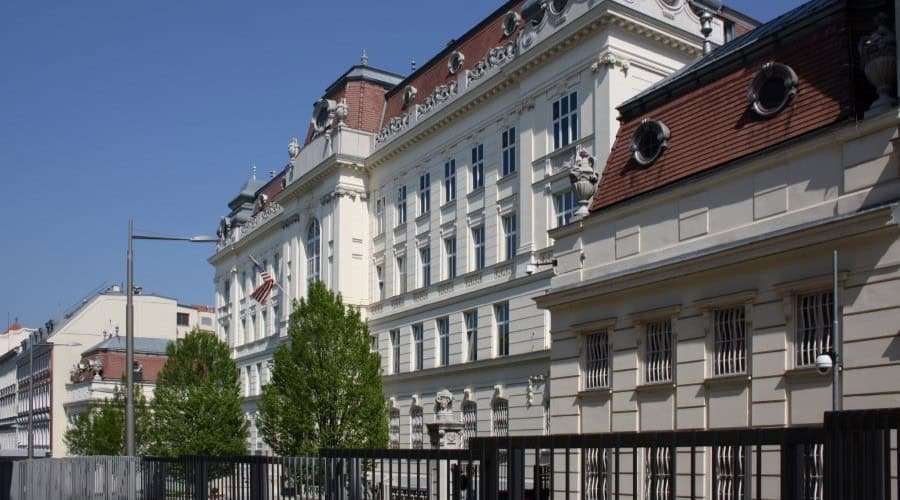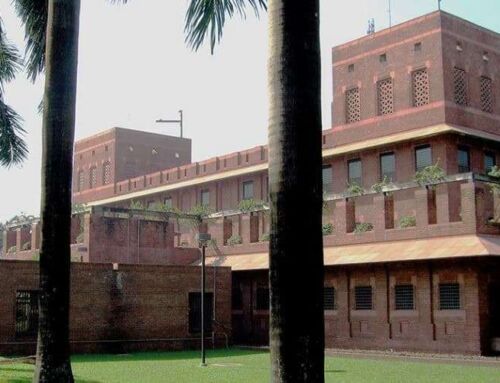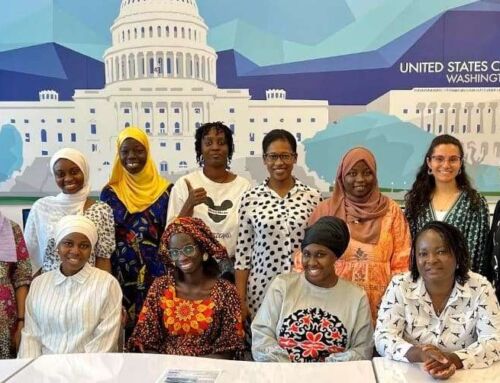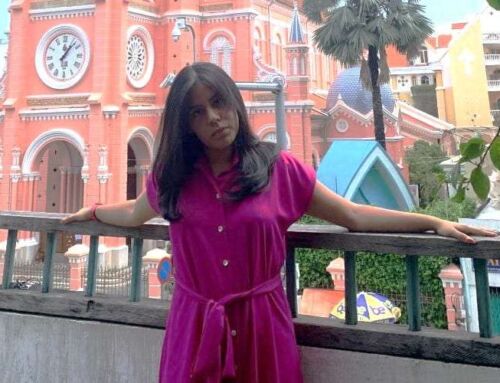Jacob Barr became a Diplomatic Technology Officer after completing the FAIT Fellowship with the 2020 cohort. He is currently posted at the U.S. Embassy Vienna, Austria.
Tell us a little about yourself – where are you from, where did you go to college and what was your major?
I’m from the Pacific Northwest and grew up in eastern Washington state. I went to a community college to start and then transferred to the University of Washington where I studied Slavic and German languages and International Studies. As a FAIT Fellow, I earned a Master of Science in Data Science at Kent State University.
What made you decide that you wanted to work in technology for the Foreign Service?
Working in the Foreign Service was a goal of mine for a long time, since middle school, when I heard a couple of Diplomats in Residence speak about their experiences. The technology part came much later. After more schooling and some jobs using IT, I took another look at the Foreign Service and discovered the FAIT Fellowship. It was a great match.
What impact has the FAIT Fellowship had on your life, personally or professionally?
Professionally, the FAIT Fellowship has given me a cohort of peers that I’ve grown to know and admire over the years. I’ve had the pleasure of getting to meet many of the FAIT Fellows from before and after my FAIT Fellowship 2020 cohort. The mentorship and community aspect of the FAIT Fellowship has been a huge blessing in my professional life as I started with the Department of State.
Where was your first post (or if you are still in your first post), and can you tell us about your experience when you first got there?
First arriving in Vienna in the spring of 2023 was a realization many years in the making. I arrived with my family and was picked up by another FAIT Fellow, Dan Lewis. I was excited to get dropped off at our new home and start settling in after six months of limbo in DC.
Can you describe how your role as a Diplomatic Technology Officer supports diplomacy?
If you understand the embassy as a platform for the U.S. government overseas, the DTO role easily fits into the greater mission. We make sure the communication systems are working properly, and our internal customers have everything they need to do their jobs. It is a privilege to work with my colleagues who understand and appreciate the role we play.
What is your most memorable or rewarding experience as a DTO?
Setting up Starlink internet in Jerusalem after the Hamas attacks. We wanted to make sure there was another reliable internet connection in addition to radio communications and Starlink had just been approved for Department of State use.
Tell us about the Foreign Service lifestyle – what are the pros and cons?
There are so many pros in the Foreign Service lifestyle. Magnificent housing, frequent travel, foreign language education, having the next move always on the horizon. The major con for me goes hand in hand with the prevailing pro – the transient nature of the job. You do miss out on moments with your family and building a deeper community over the years. This is a public service and one not to be taken lightly. Anyone who does not recognize this does not understand the opportunity cost of this job.
What are your future aspirations?
Before joining the Foreign Service, I studied several foreign languages and now it is my goal to have all their proficiencies documented by the Department of State. It is a multi-year project, but I’m steadily working through them. I would love to work at our embassy in Bern, using German and French.
Do you have any advice for those thinking about applying for the FAIT Fellowship?
If you’re interested in working with the Foreign Service in information technology, definitely apply to the FAIT Fellowship.






